Related Research Articles

Little Women is a coming-of-age novel written by American novelist Louisa May Alcott, originally published in two volumes in 1868 and 1869. The story follows the lives of the four March sisters—Meg, Jo, Beth, and Amy—and details their passage from childhood to womanhood. Loosely based on the lives of the author and her three sisters, it is classified as an autobiographical or semi-autobiographical novel.

Richard of York, 3rd Duke of York, also named Richard Plantagenet, was a leading English magnate and claimant to the throne during the Wars of the Roses. He was a member of the ruling House of Plantagenet by virtue of being a direct male-line descendant of Edmund of Langley, King Edward III's fourth surviving son. However, it was through his mother, Anne Mortimer, a descendant of Edward III's second surviving son, Lionel of Antwerp, that Richard inherited his strongest claim to the throne, as the opposing House of Lancaster were descended from John of Gaunt, Duke of Lancaster, the third surviving son of Edward III. He also inherited vast estates and served in various offices of state in Ireland, France and England, a country he ultimately governed as Lord Protector due to the mental instability of King Henry VI.

Humphrey Stafford, 1st Duke of Buckingham, 6th Earl of Stafford, 7th Baron Stafford, of Stafford Castle in Staffordshire, was an English nobleman and a military commander in the Hundred Years' War and the Wars of the Roses. Through his mother he had royal descent from King Edward III, his great-grandfather, and from his father, he inherited, at an early age, the earldom of Stafford. By his marriage to a daughter of Ralph, Earl of Westmorland, Humphrey was related to the powerful Neville family and to many of the leading aristocratic houses of the time. He joined the English campaign in France with King Henry V in 1420 and following Henry V's death two years later he became a councillor for the new king, the nine-month-old Henry VI. Stafford acted as a peacemaker during the partisan, factional politics of the 1430s, when Humphrey, Duke of Gloucester, vied with Cardinal Beaufort for political supremacy. Stafford also took part in the eventual arrest of Gloucester in 1447.
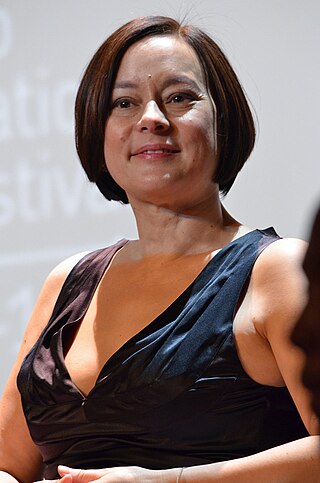
Meg Tilly is a Canadian-American actress and writer.

Carry On Nurse is a 1959 British comedy film, the second in the series of 31 Carry On films (1958–1992). Of the regular team, it featured Joan Sims, Kenneth Williams, Kenneth Connor and Charles Hawtrey, with Hattie Jacques and Leslie Phillips. The film was written by Norman Hudis based on the play Ring for Catty by Patrick Cargill and Jack Beale. It was the top-grossing film of 1959 in the United Kingdom and, with an audience of 10.4 million, had the highest cinema viewing of any of the "Carry On" films. Perhaps surprisingly, it was also highly successful in the United States, where it was reported that it played at some cinemas for three years. The film was followed by Carry On Teacher 1959.
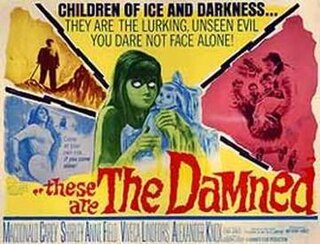
The Damned is a 1961 British science fiction horror film directed by Joseph Losey and starring Macdonald Carey, Shirley Anne Field, Viveca Lindfors and Oliver Reed. Based on H.L. Lawrence's 1960 novel The Children of Light, it was a Hammer Film production.
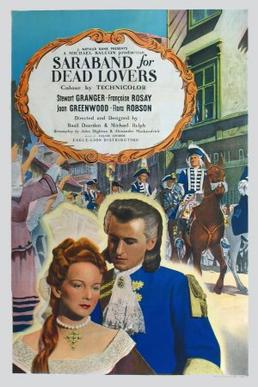
Saraband for Dead Lovers is a 1948 British adventure historical drama film directed by Basil Dearden and starring Stewart Granger and Joan Greenwood. It is based on the 1935 novel by Helen Simpson. Set in 17th-century Hanover, it depicts the doomed romance between Philip Christoph von Königsmarck and Sophia Dorothea of Celle, the wife of the elector of Hanover. The saraband mentioned in the title is a type of Spanish dance.
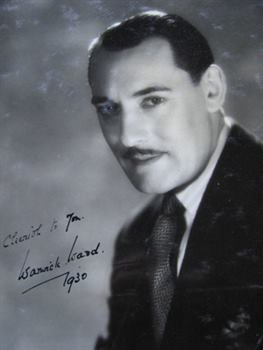
Warwick Ward was an English actor of the stage and screen, and a film producer. He appeared in more than 60 films between 1919 and 1933. He also produced 19 films between 1931 and 1958. He was born in St. Ives, Cornwall.
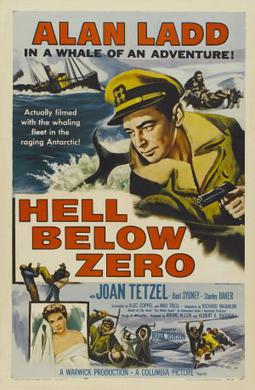
Hell Below Zero is a 1954 British-American adventure film directed by Mark Robson and starring Alan Ladd, Joan Tetzel, Basil Sydney and Stanley Baker. It was written by Alec Coppel and Max Trell based on the 1949 novel The White South by Hammond Innes, and presents interesting footage of whaling fleets in action. It was the second of Ladd's films for Warwick Films.
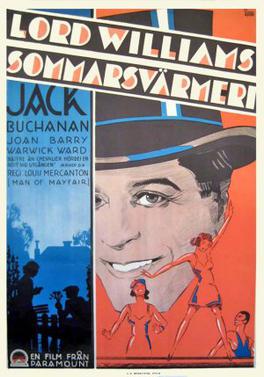
A Man of Mayfair is a 1932 British musical comedy film directed by Louis Mercanton and starring Jack Buchanan, Joan Barry and Warwick Ward.
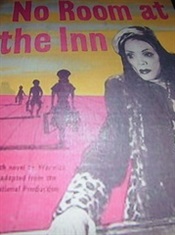
No Room at the Inn is a 1945 play by Joan Temple that became a 1948 film directed by Daniel Birt. Both play and film are presented in flashback mode and share the same subject matter – cruelty, neglect and mental and physical abuse meted out to evacuee children during World War II. Temple's attack on those who turn a blind eye to child abuse, be they public officials or private individuals, was considered frank and uncompromising in its time.

English Without Tears is a 1944 British romantic comedy film directed by Harold French and starring Michael Wilding, Penelope Dudley-Ward and Lilli Palmer. It was released in the U.S. under the title Her Man Gilbey, as a reference to the classic Screwball comedy, My Man Godfrey (1936).
The Monkey's Paw is a 1948 British horror film directed by Norman Lee, who also wrote the screenplay, and starring Milton Rosmer, Michael Martin Harvey, Joan Seton and Megs Jenkins. It is based on the 1902 story "The Monkey's Paw" by W. W. Jacobs. The screenplay was written by Norman Lee and Barbara Toy. It was produced by Ernest G. Roy.
Deadlock is a 1931 British crime film directed by George King and starring Stewart Rome, Marjorie Hume and Warwick Ward. It is on the British Film Institute's list of the 75 Most Wanted list of lost films.
The Loves of Ariane is a 1931 British-German drama film directed by Paul Czinner starring Elisabeth Bergner, Charles Carson and Percy Marmont. Shot in Germany, it was an English-language version of the 1931 film Ariane. It was based on the 1920 novel Ariane, jeune fille russe by Claude Anet. The screenplay concerns a young woman studying at University who falls in love. A German version of the film, Ariane was also made.
The Woman Tempted is a 1926 British silent drama film directed by Maurice Elvey and starring Juliette Compton, Warwick Ward and Nina Vanna. It was based on a novel by Vera, Countess Cathcart. The film was shot at Cricklewood Studios, and was backed by John Maxwell's Wardour Films which was dramatically increasing its role in the film industry. It was first given a trade show screening in June 1926, but did not go on full release until the following March. By that time Elvey had departed to work for Maxwell's rival Gaumont-British.
The Lilac Sunbonnet is a 1922 British silent drama film directed by Sidney Morgan and starring Joan Morgan, Warwick Ward and Pauline Peters.
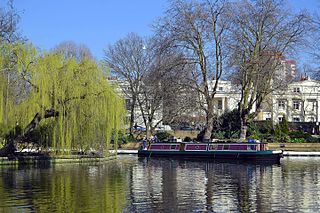
Little Venice is an affluent residential district in West London, England, around the junction of the Paddington Arm of the Grand Union Canal, the Regent's Canal, and the entrance to Paddington Basin. The junction, also known as Little Venice and Browning's Pool, forms a triangular shape basin designed to allow long canal boats to turn around. Many of the buildings in the vicinity are Regency white painted stucco terraced town houses and taller blocks (mansions) in the same style. The area is 2.5 miles (4.0 km) west-north-west of Charing Cross and immediately north-west of Paddington.
Petticoat Loose is a 1922 British silent drama film directed by George Ridgwell and starring Dorinea Shirley, Warwick Ward and Lionelle Howard. It is based on the 1898 novel of the same title by Eliza Humphreys about a playwright who hypnotises the woman he loves, controlling and ruining her life.
The World's Desire is a 1915 British silent drama film directed by Sidney Morgan and starring Lilian Braithwaite, Fred Groves and A.V. Bramble.
References
- ↑ Palmer p.803